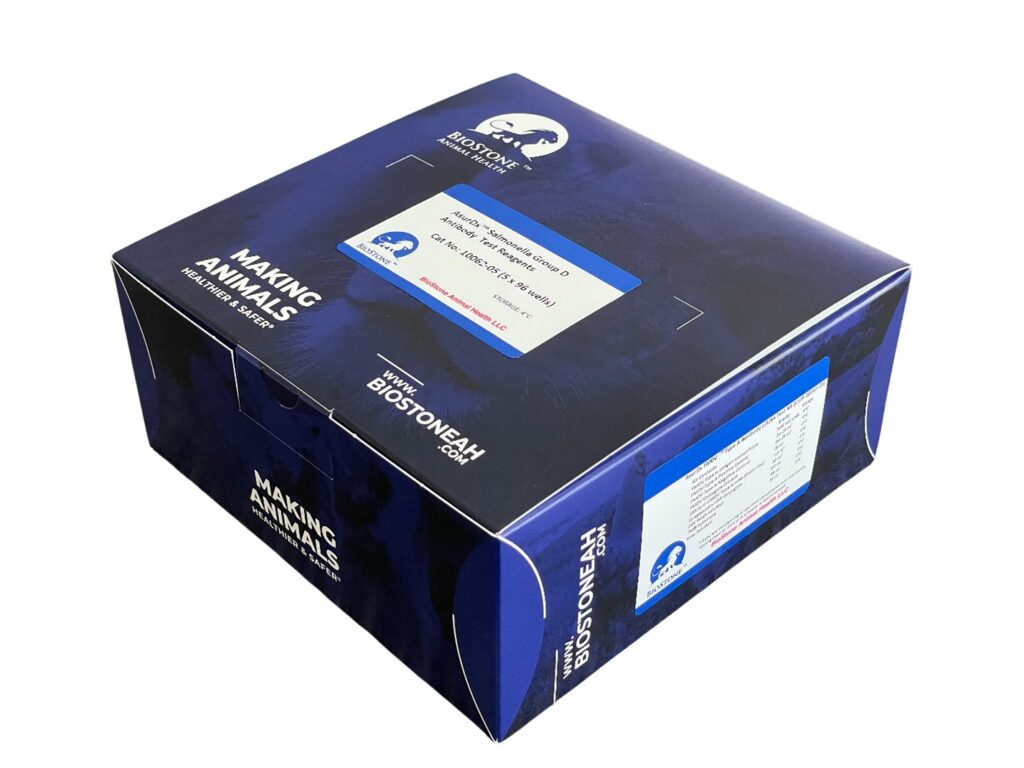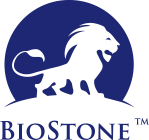AsurDx™ Salmonella Group D Antibody Test
The AsurDxTM Salmonella Group D Antibody Test Kit is designed for the detection of antibodies against invasive group D Salmonella serotypes, including Salmonella Enteritidis, Pullorum and Gallinarum and other invasive group D Salmonella species in chicken serum and plasma.

Feature
- Detects Salmonella Enteritidis, Pullorum and Gallinarum and other invasive group D Salmonella species antibodies of the IgG in chicken serum/plasma;
- Procedures last less than 75 minutes;
- Provides a simple, rapid, sensitive and cost-effective enzyme-based immunoassay (ELISA) screening method
*Availability/Distribution: Product is designed and developed by BioStone US Texas headquarter and manufactured/assembled by BioStone oversea subsidiaries or partners. Currently, the product is only available outside of the USA. Regulatory requirements vary by oversea countries; the product may not be available in your geographic area.
Specification
| Method | Competitive ELISA |
| Coated Antigen | Salmonella antigen-coated Plate |
| Incubation Time | 75 minutes |
| Storage | At least 12 months |
| Specificity | Salmonella group D chicken antibodies |
Order Information
| Catalog Number | 10062-02 | 10062-05 |
| Plates | 2 plates | 5 plates |
| Reactions | 192 | 480 |
| Plate Format | 12 X 8-well strips | 12 X 8-well strips |
About Disease
Salmonella are important pathogenic bacteria infecting humans or animals. Different Salmonella serovars may either infect a variety of animals or be restricted to a single host. Salmonella Enteritidis can infect multiple hosts including chicken and humans whereas Salmonella Gallinarum can only infect chickens, though they are very similar to each other genetically and both of them are belong to serogroup D.
Egg-associated salmonellosis is an important public health problem in the United States and other countries. Salmonella Enteritidis, can be inside perfectly normal-appearing eggs, and if the eggs are eaten raw or undercooked, the bacterium can cause illness. The serotype Gallinarum can be further divided into two biovars: bv. Gallinarum and bv. Pullorum. The two biovars are both non-motile and have nearly identical biochemical characteristics except that bv. Pullorum can produce rapid decarboxylation of ornithine. Clinically, they both infect chickens only, with bv. Gallinarum causing typhoid but bv. Pullorum causing pullorum disease.
